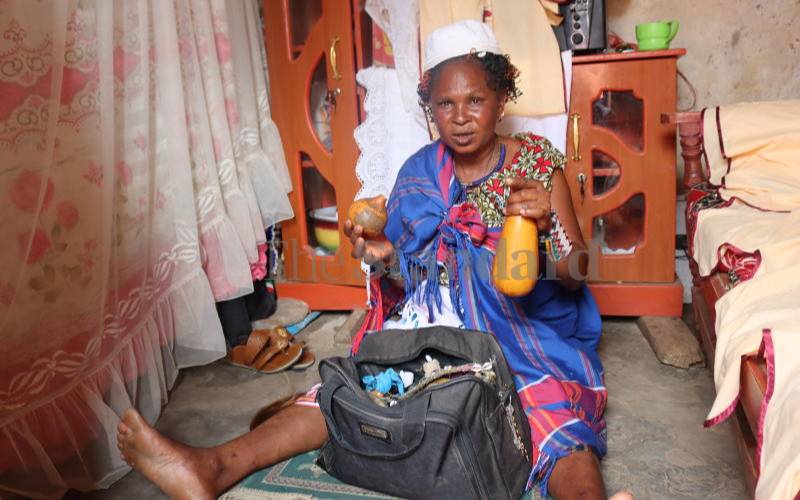
Many Kenyans have for donkey years relied on traditional healers among them witch-doctors, intercessors and herbalists for treatment of disorders and diseases despite the existence of modern medicine, drugs, specialists and all.
It is common to come across posters plastered on electric posts, walls or nailed on trees advertising their services. The services listed include; reclaiming lost vitality, casting out demons, glueing up unfaithful spouses, treating cancer and diabetes besides the right antidote for ‘wasiwasi kazini’ (workplace anxiety).